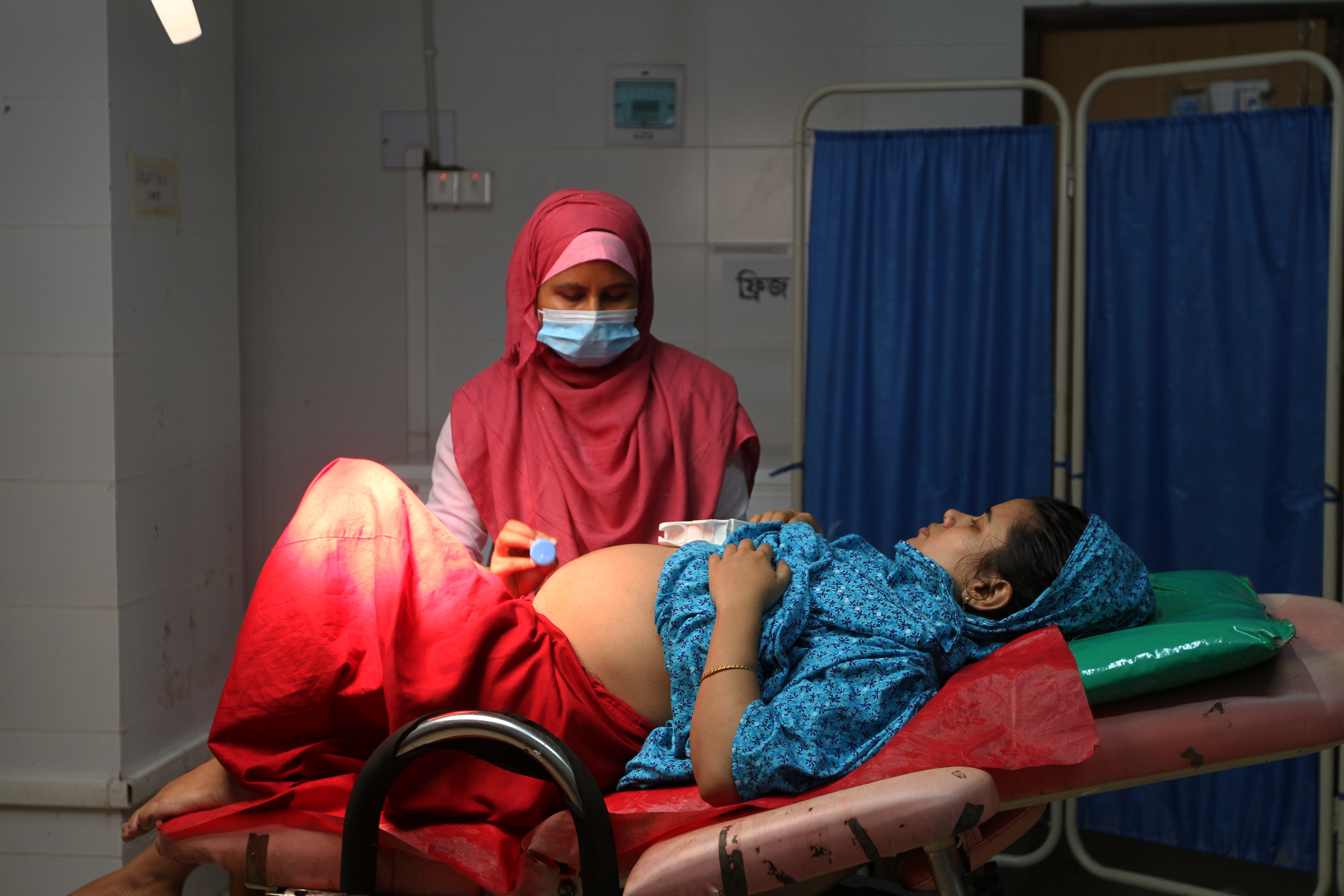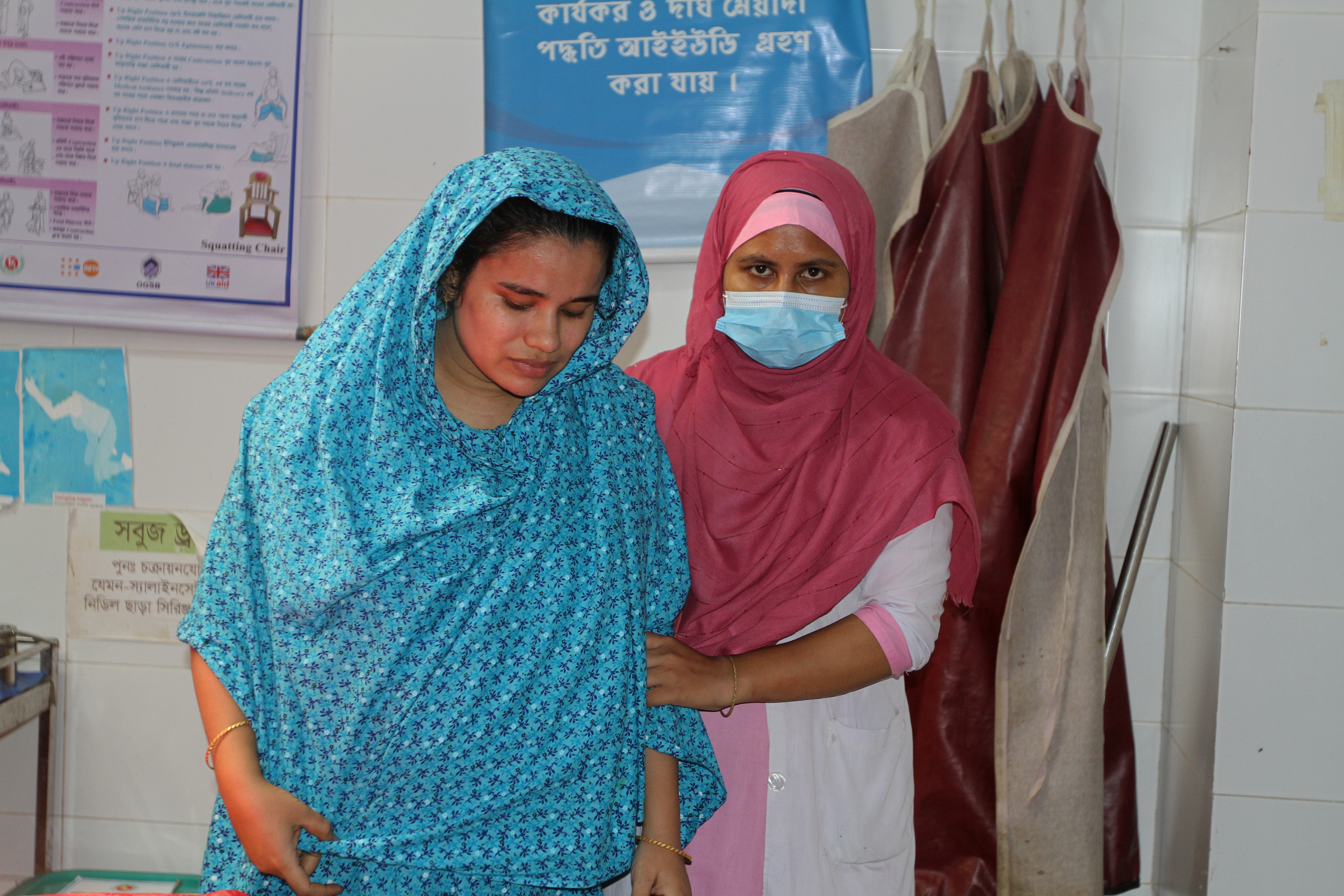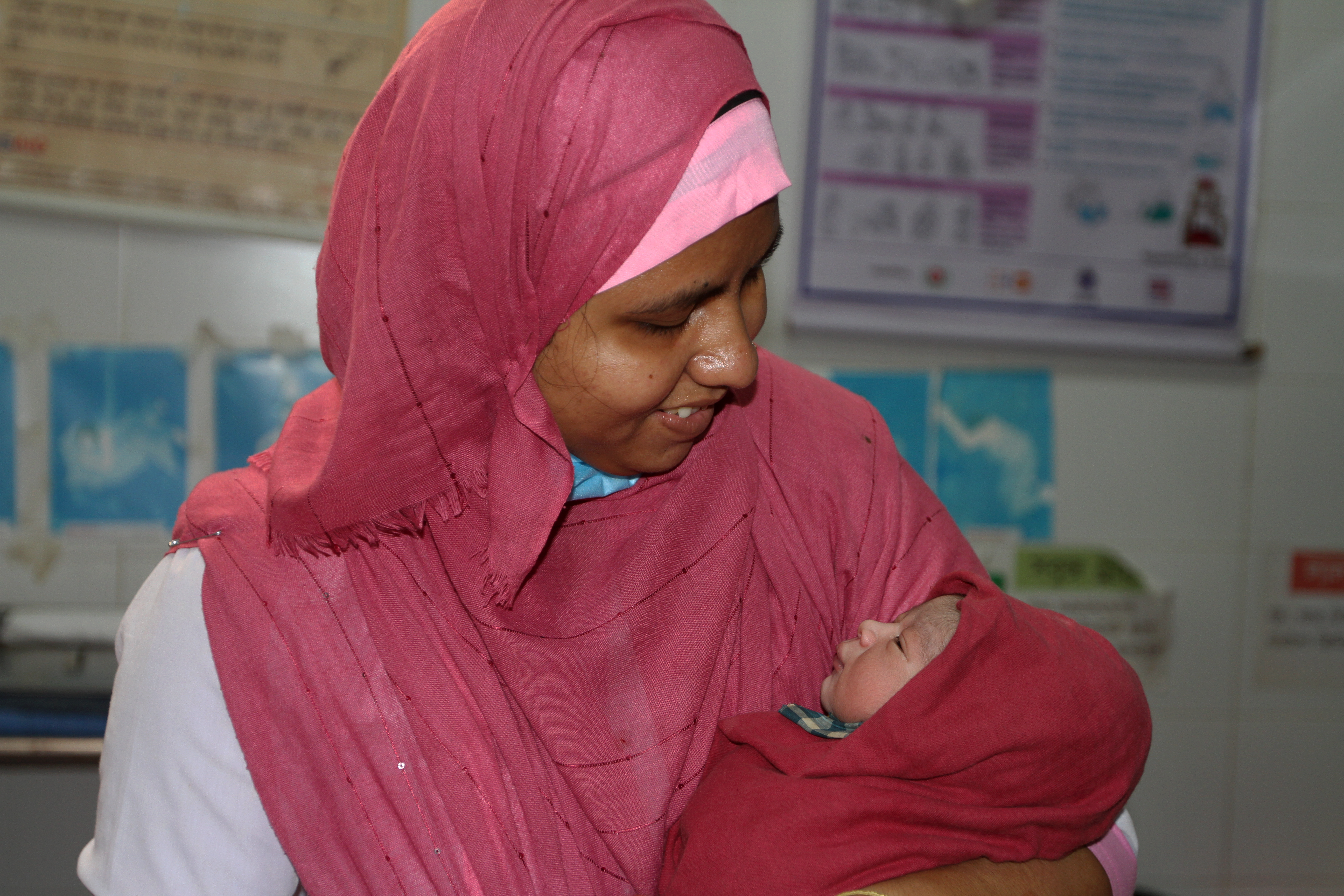“The floods occurred so fast, literally in one day. In the morning, I came to the hospital for a normal work day. When I left home, there was chaos everywhere. People were rushing all over the place and the roads were all covered in water.”
This is how Hazera Akther, a 26-year old midwife from Sardar Upazila Health Complex in Sunamganj District describes the fear and anxiety that engulfed the people of north-eastern Bangladesh in June of this year, when floods devastated the region’s Sunamganj, Sylhet and Netrokona districts.
While the districts had endured natural disasters in the past, this year’s floods were both unexpected and exceptionally intense, which resulted in the local communities not being adequately prepared for the disaster. Close to 500,000 people had to evacuate their homes and many basic services were severely compromised.
This included Hazera’s hospital, where she has been working as part of UNFPA-supported mentorship programme since 2020. An estimated 25,000 people took shelter in the hospital and for the first three days, the midwives had to perform their duties without electricity and a functioning telecommunications network.
“All the rooms of the hospital were packed with people. A lot of the families also brought their dogs, hens and goats with them. It was smelly and there was dung everywhere. However, we always made sure that the delivery room remained unoccupied. During the first three days, there was no electricity so at night, we did all the deliveries, surgeries and other necessary procedures in candlelight,” Hazera explains.

On the first three days of the floods, Hazera and her colleagues depended on candle light to do their work at night. Photo: UNFPA Bangladesh/Alka Ferdous.
One night, a woman from a nearby village who had just delivered a baby at home arrived in the hospital, bleeding profusely. “She had postpartum hemorrhage and had somehow managed to take a boat to our hospital after being referred here by the dai (traditional birth attendant) who had performed the delivery.”
Without the possibility of calling senior doctors in other hospitals for advice, Hazera depended on her own expertise to solve the difficult case. Miraculously, she was able to identify a bad tear inside the woman and repair it with the help of her colleagues in the candlelit room. “This was definitely the most challenging thing I had to do during the crisis,” Hazera says with a hearty laugh.
Throughout all these hardships, Hazera herself was 5 months pregnant with her first child. For three days, she was not able to reach her husband or family in Chadpur District who were worried to death about how she was surviving the flood. “All updates they could receive of the situation in Sunamganj were through the news, which was so traumatizing for them.”
When Hazera was finally able to reconnect with them, the family pressured her to stop working and if possible, return to her village. Hazera had considered the possibility herself once the floods began. “I admit that my first thought was that I would not go out. Because was pregnant myself, I thought that I should save myself before I saved anybody else. I felt I would need to take a step back from my service,” Hazera explains.

Being pregnant herself helped Hazera relate to the hardships the pregnant mothers affected by the flood were going through. Photo: UNFPA Bangladesh/Alka Ferdous.
“However, when I thought about the plight of other pregnant women, I knew I could not stop working. Knowing exactly the struggle they were going through, how could I neglect my duty? I had to be there for them.” she continues.
Witnessing the heroism and sacrifices of her colleagues throughout the crisis further confirmed to Hazera that she had made the right decision. As pregnant woman kept being referred to the hospital from smaller villages, many of her colleagues kept working after their shift was over. As transportation options were limited, the midwives often waded to work through chest-deep water and performed their duties in wet uniforms.
“Amidst all this, I was so proud that I was coming to the hospital to serve other pregnant mothers. As a pregnant woman myself, I was able to relate to them. I listened to their worries about money, food scarcity and other things. I was able to comfort them by reminding them that the floods would not last forever and that soon, we would all return home.”



